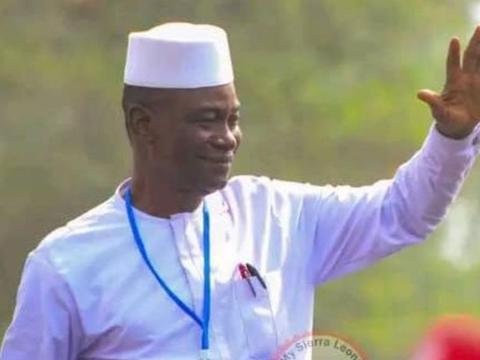By Saio Marrah
Lawyers in the Sierra Leone New York chancery case have highlighted key points of their closing arguments, printed copies of which have already been submitted to Justice Adrian Fisher.
Lawyer Ady Macauley, representing Dr. Samura Kamara told the court that his client did not present a document to cabinet for approval of Fair Field Construction Company to undertake the contract for the renovation of the chancery building. He said it was the then Deputy Minister of Foreign Affairs, Mohamed Gibril Sesay who did so when he acted as substantive minister.
Speaking on Friday July 12, 2024 Lawyer Macauley rejected the argument of the state that Dr. Samura Kamara deceived his principal, government of Sierra Leone by presenting the said document to the cabinet. He said the prosecution failed to prove their case as Dr. Samura Kamara did not author the document pointing out that it was actually done by the cabinet secretariat in consultation with the Foreign Ministry.
Commenting on his client’s signature on the document, Lawyer Macauley argued that a soft copy of Dr. Kamara signature was used. He said the second count in the indictments indicated misappropriation of public funds amounting to two million five hundred and sixty thousand United States Dollars ($ 2,560,000) meant for the reconstruction of the Chancery Building, but that the Anti-Corruption case was not about misappropriation of funds during the award of the contract, but value for money. He argued that there was no evidence to show that the government lost money in awarding the contract.
He said if the contractor failed to do what he was supposed to do during the implementation of the contract there is provision for litigation for such.
Responding, State Prosecutor, Calvin Mantsebo, said the accused ought to have said something in his defence but Lawyer Macauley told the court that his client decided not to testify from the witness box because the evidence provided by the prosecution was so weak that there was no need to do so and to simply rely on his earlier statement to ACC.
Having regard to the second accused, Ambassador Adekali Foday Suma who said he signed the contract as the then Sierra Leone Permanent Representative to the UN under instruction from his superiors in the Ministry of Foreign Affairs, the prosecution said that was not a defence. The prosecution said because the second accused was relying on the instruction of his superiors, there could, in fact, be a willful breach of rules.
To this argument, Justice Adrian Fisher, said the defence may say he did not do it with his independent willfulness, but was instructed to do so. He said the prosecution ought to establish that the accused indeed knew the law, but breached. The prosecutor said during cross examination of the second accused, he admitted that he knew it was wrong, but went ahead.
Lawyer Africanus Sorie Sesay representing the second accused said his client only acted as an agent of the state and that signing the contract did not indicate a criminal conduct. He said a memo attached to the contract which his client signed instructed him to do so and that the said memo contained approval of the cabinet, law officers department and the procurement authority.
He said his client specifically pointed out that there was cabinet advice for the approval and to proceed with the contract, which he said led to the Ministry of Foreign Affairs instructing his client to sign the contract.
On the allegation of conspiracy, the defence said that the other party to the conspiracy, Jules Sanders Davies who his client allegedly conspired with to misappropriate public funds, did not surrender himself to the court and that Davies had the evidence to show that the second accused did not commit that offence. He called on the court to acquit and discharge his client.
Emmanuel Teddy Koroma, representing the fifth accused, Kandeh Foday Basil Kamara as the then Finance Attaché at the UN mission, who was charged with conspiracy to misappropriate public funds and failure to comply with applicable procedure to manage fund, said he was posted to the mission way after the award of the contract.
Lawyer Koroma said during his client’s time at the mission, he signed about eight vouchers and executed his job within the confines of his duty by ensuring that the contractor acknowledged receipt of the entire funds and the money was spent for its intended purpose. He added that there was nothing to show that he conspired with the first accused or with any other person and urged the court to acquit and discharge his client.
Justice Fisher called on all parties to be patient as the case was coming to an end. He spoke about the complexity of the case and promised to serve notice for the conclusion of the case.
Copyright © 2024 Politico (15/07/24)








